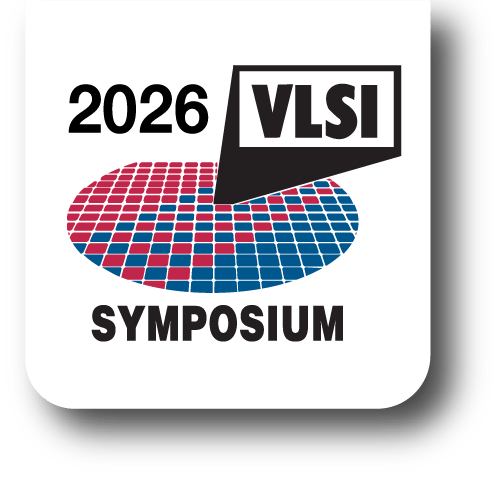Countdown for
Late News
Deadline Monday,
March 30, 2026
23:59 PST
NEW for 2026 – Pre-submission Checklist
This checklist includes tips and important requirements regarding the pdf paper as well as the electronic submission. Review carefully prior to submission. Papers and submissions that do not meet these requirements may be automatically rejected.
AVAILABLE BY DECEMBER 31, 2021
Paper Guidelines
Papers will be considered on the basis of originality, innovation, and advancing the field. Prototype implementation and measured results will be considered favorably in the ratings.
Requirements:
- Complete paper must occupy no more than three pages including illustrations.
- Submitted papers which exceed this length will not be accepted for review.
- Each page can contain about 700 words and two illustrations (assuming each illustration is in two-column format). A page could contain as many as six illustrations if they are sized accordingly.
- A page of figures should be Arial font and no smaller than 8 pt size.
- When preparing the final pages, please carefully follow the instructions in the Author’s Guide 8.5×11 or A4.
- Please avoid the use of special international fonts in the main body text, figures, charts, and tables in the paper submission.
- The authors may use the first page for text and the second and third pages for pictures.
- You must have approval from your organization before submitting your paper to the 2026 IEEE/JSAP Symposium on VLSI Technology & Circuits. The IEEE/JSAP Symposium on VLSI Technology & Circuits views as an unprofessional practice the withdrawal of a paper once it has been submitted by the author, accepted by the Program Committee, and widely announced in the Advance Program. Withdrawal of a paper or failure to present a paper at the Symposium after the Advance Program is distributed jeopardizes both the Symposium’s credibility and the author’s professional reputation.
Submission Details
Prospective authors must submit paper abstracts with the three-page paper format according to the Symposium guidelines. Accepted papers will be published as submitted with no revisions permitted. Authors must follow detailed instructions provided in the “Authors” section of the website, including the Authors’ Guide and Pre-publication Policy. Students are encouraged to apply to the prestigious Best Student Paper Award. Extended versions of outstanding papers will be invited for publication in the IEEE Transaction on Electron Devices, IEEE Journal of Solid-State Circuits, and IEEE Solid-State Circuits Letters.
Create an Xplore Compliant PDF
Validate Your Paper with IEEE eXpress®
All papers to be submitted to 2026 IEEE/JSAP Symposium on VLSI Technology & Circuits should be validated by IEEE PDF eXpress before submission.
First-time users should do the following:
- Select the “Don’t have an account? Create account“.*
- Enter the following: Conference ID: 65830X
- Your Email Address
- Password
- Continue to enter information as prompted.
An Online confirmation will be displayed, and an email confirmation will be sent verifying your account setup.
*Previous users of PDF eXpress need to follow the above steps, but should enter the same password that was used for previous conferences. Verify that your contact information is valid.
Upload your source file. Once the Xplore compliant pdf has been created, you will receive an email. Review the pdf and if it is correct, that is the file that you will upload to the VLSI submission site.
Contacting PDF eXpress Support
Access the Publications Support Center for IEEE PDF eXpress.
Confirm or Replace Your Submission
You may confirm or replace your paper (including all information registered on Paper Submission Form) on-line at any time up until the submission deadline, Monday, January 26, 2026, 23:59 PST (Tuesday, January 27, 2026, 07:59 GMT / Tuesday, January 27, 2026, 16:59 JST)
Plenary Papers
- Plenary papers are allowed to be no more than 6 pages max including illustrations.
- Each page can contain about 700 words and two illustrations (assuming each illustration is in two-column format). A page could contain as many as six illustrations if they are sized accordingly.
- A page of figures should be Arial font and no smaller than 8 pt size.
- When preparing the final pages, please carefully follow the instructions in the Plenary Papers Authors Guide
- Please avoid the use of special international fonts in the main body text, figures, charts, and tables in the paper submission.
- All papers must be validated by IEEE PDF eXpress in order to be included in the proceedings (see accordian Create an Xplore Compliant pdf)
Call for Workshops
Workshop submission information is available at Call for Workshops under Call for Papers tab
Demo Session
If you are interested in presenting your work during the Demo Session, you will need to indicate this at the time of paper submission. The Demo Session will be held with the Welcome Reception on Monday, June 15.
The Demo session provides an engaging platform to present live, hands-on demonstrations of the latest advancements in circuits, devices, and integrated systems.
Whether you’re planning on presenting cutting-edge IC designs, novel device technologies or real-time circuit/system performance, the demo session is an excellent opportunity to engage directly with conference attendees, receive feedback, and highlight the practical impact of your work. Submissions should clearly describe the functionality, novelty, and technical significance of the demo.
Interactive, visually engaging, or real-time performance demonstrations are particularly encouraged. For device-focused demos, participants are encouraged to emphasize technical innovation and experimental rigor, rather than modular or building block demonstrations. Demos should aim to convey novel device behavior, fabrication insight, integration complexity, or performance metrics beyond simple assembly-based setups.



